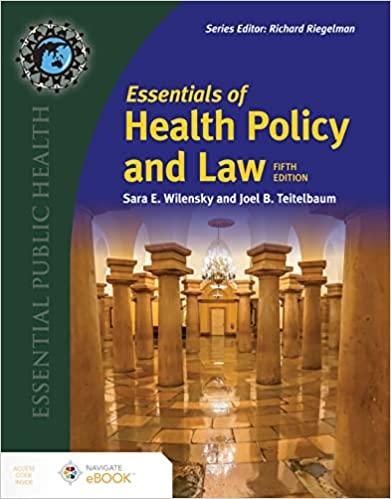As a general matter, all types of insurance under traditional economic models cover expensive and unforeseen events,
Question:
As a general matter, all types of insurance under traditional economic models cover expensive and unforeseen events, not events that have small financial risk or little uncertainty (Council of Economic Advisors, 2004, p. 195). For example, auto insurance does not cover regular maintenance, such as an oil change, and home insurance does not protect against normal wear and tear, such as the need to replace an old carpet.
Accordingly, many economists argue that health insurance should not cover regular, foreseeable events such as physical exams or low-cost occurrences such as vaccinations. Other economists support a different school of thought. An alternative economic view is that health insurance should insure one’s health, not just offer protection against the financial consequences of major adverse health events. Because people without health insurance are less likely to obtain preventive care such as physical exams or vaccinations, these economists believe that it is in everyone’s best interest, ethically and financially, to promote preventive care. Therefore, it is appropriate for insurance to cover both unpredictable and expensive events as well as predictable and less expensive events. Which theory do you support? What do you think is the best use of insurance? If insurance does not cover low-cost and predictable events, should another resource be available to assist individuals, or should people pay out of their own pockets for these healthcare needs?
Step by Step Answer:

Essentials Of Health Policy And Law
ISBN: 9781284247459
5th Edition
Authors: Sara E. Wilensky, Joel B. Teitelbaum





